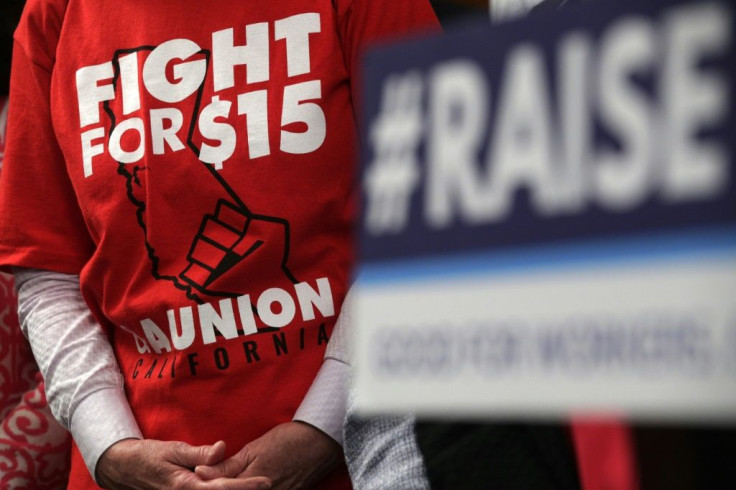California Minimum Wage Hikes: A Noble Cause With Disastrous Consequences
California's Fast Food Accountability and Standards Recovery Act (FFASR), which will boost the minimum wage to $22 an hour, will add fuel to inflation, push scores of restaurants off the cliff, speed up automation of the food service industry and raise unemployment.
The United States is a country that boasts of its free enterprise market system. It's a system that lets private enterprises and markets decide what the economy will produce, how it will produce it and how it will allocate it. In addition, the country's free enterprise system determines how many people will hold what kind of jobs and how they will get paid.
But the Golden State's government does not seem to have a great deal of appreciation for the free enterprise system. Instead, it leans towards a socialist system where politicians and government bureaucrats assume an extensive role in the economy, especially in the labor market.
Here, government mandates tell businesses how to employ their labor force and how much to pay it, irrespective of how much that labor produces. Apparently, the state turns labor pay into an entitlement, rather than the reward for productive work, and eventually determines who will be in what business and for how long.
At least, that seems to be the case with the FFSAR act, which was signed into law recently. In theory, the new law has a noble cause, to put more money into the hands of low-income Americans, and help them cope better with living expenses.
But in practice, things are different. The state of California won't have to pay higher wages. Private businesses would, in several ways. One, they can pass the higher wage cost on to consumers, adding fuel to inflation. Two, they can reduce their hours of operation. Three, they can close their doors and leave the state. And four, they can push for further automation of their operations, raising local unemployment.
That's why experts are skeptical of the new law. John-Paul Deol, Partner and Head of Employment Law at Dhillon Law Group Inc., is one of them. He thinks California workers already have plenty of protections under existing state and federal wage-and-hours laws. Thus, it's hard to see what the new law does to improve the situation.
"It is very unclear what benefit this new law adds to existing law, except to increase costs and bureaucracy," he told International Business Times in an email.
Instead, he sees the new law hurting the Golden State's businesses, especially the fast-food restaurant industry, where he thinks the $22/hour wage will force companies to leave the state or hike prices. "If businesses do not leave the state, you can bet that they will pass the high labor costs onto consumers, worsening the harm already done by inflation."
Sam Zietz, CEO at GRUBBRR, thinks that the $22 an hour minimum wage to be followed by 3.5% or the cost-of-living adjustments every year after that, as stipulated by the new law, is a dangerous idea. Moreover, he quotes data from the UC Riverside School of Business, which show that a minimum wage in the $22 to $43 range would boost labor costs by 60% and increase prices by 20%.
In addition, he quotes data from the National Restaurant Association showing that 45% of California's restaurant operators face worse business conditions than they did three months ago.
"In short, restaurants are hurting," Zietz told IBT in an email. "They struggle to find labor, operating costs have increased dramatically, and customer competition is fierce."

© Copyright IBTimes 2024. All rights reserved.






















